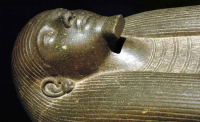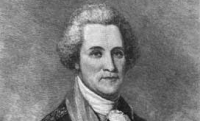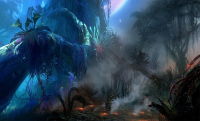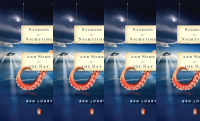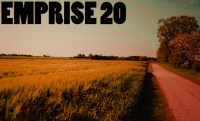Reviewed by Elaina Perpelitt
2008, W.W. Norton & Company, New York
144 pages, hardcover
Li-Young Lee’s fifth book of poetry, Behind My Eyes, is a tender hymn to the hardships of his childhood, expertly combining the feelings of an adult who’s seen too much of the world with the innocence of a child who doesn’t understand the world’s injustice.
He opens with a poem entitled “In His Own Shadow,” and one gets the feeling he is talking about himself in the third person. The boy in the poem is affected by the line: “While all bodies share the same fate, all voices do not,” and it is this line that carries interest into the following poetry.
The story that follows this boy, possibly Lee himself, is there, but detached and only seen in glimpses throughout a medley of emotions. His style is somewhat jerky, not only in transition from poem to poem, but from line to line. For example:
The ore lies awake inside the rock, a dream
or origin pealing.The bread that rises in a house that fails,
a man weeping.
This kind of transition in stanzas occurs often, giving a sense of chaos and instability that is fitting of the theme of a childhood refugee. Like a child being tossed about in the world’s unjust storms, the reader is thrown from line to line, story to story, but still able to keep a personal identity. “The childhood that didn’t last,” echoes in poem after poem. “I hear you singing yourself to sleep. It was a song from both our childhoods.” “Sister, we died in childhood, remember?” Further into the book, divinity is associated with childhood, “God’s destiny is safe for now inside the child.”
Lee likes to use the word “Time.” At first, it may seem overwhelming, as if he is hitting you over the head with your own age, but when one reads the final poem, it all makes sense. As you read, you are on life’s train, with scheduled stops, and Lee’s book makes each of those stops, throwing in metaphors of clocks and time to remind you of this. For example, “The search for him goes on in the growing shadow of the clock.” “Open, the World is a child of eternity. Closed, the World is a child of Time.” In one poem, he even admits “my favorite song is Time.”
The final poem is entitled “Station.” The reader has made all the stops and finally made it to the station. The stops suddenly make sense, such as the poems “My Clothes Lie Folded for the Journey,” and “My Favorite Kingdom.”
Your attention please. Train number 7,
Leaves Blown By, bound for The Color of Thinkingand Renovated Time, is now departing.
All ticketed passengers may board
behind my eyes.
Thus, “Time’s architecture is revealed” and the bitter sadness of a lost childhood departs from the station in Lee’s mind. Within this final image, Lee finds a kind of inner peace: one journey has been made, and new ones lie ahead.
—-
—-
Elaina Perpelitt is a student at Chapman University, has published a book of poetry and several short stories, and is currently expanding into the worlds of screenwriting, playwrighting, and experimental fiction.
